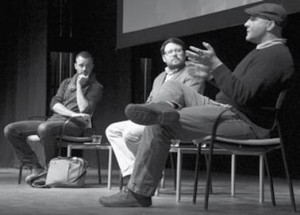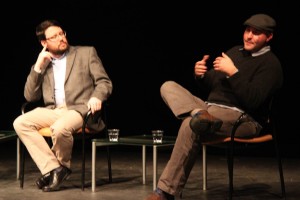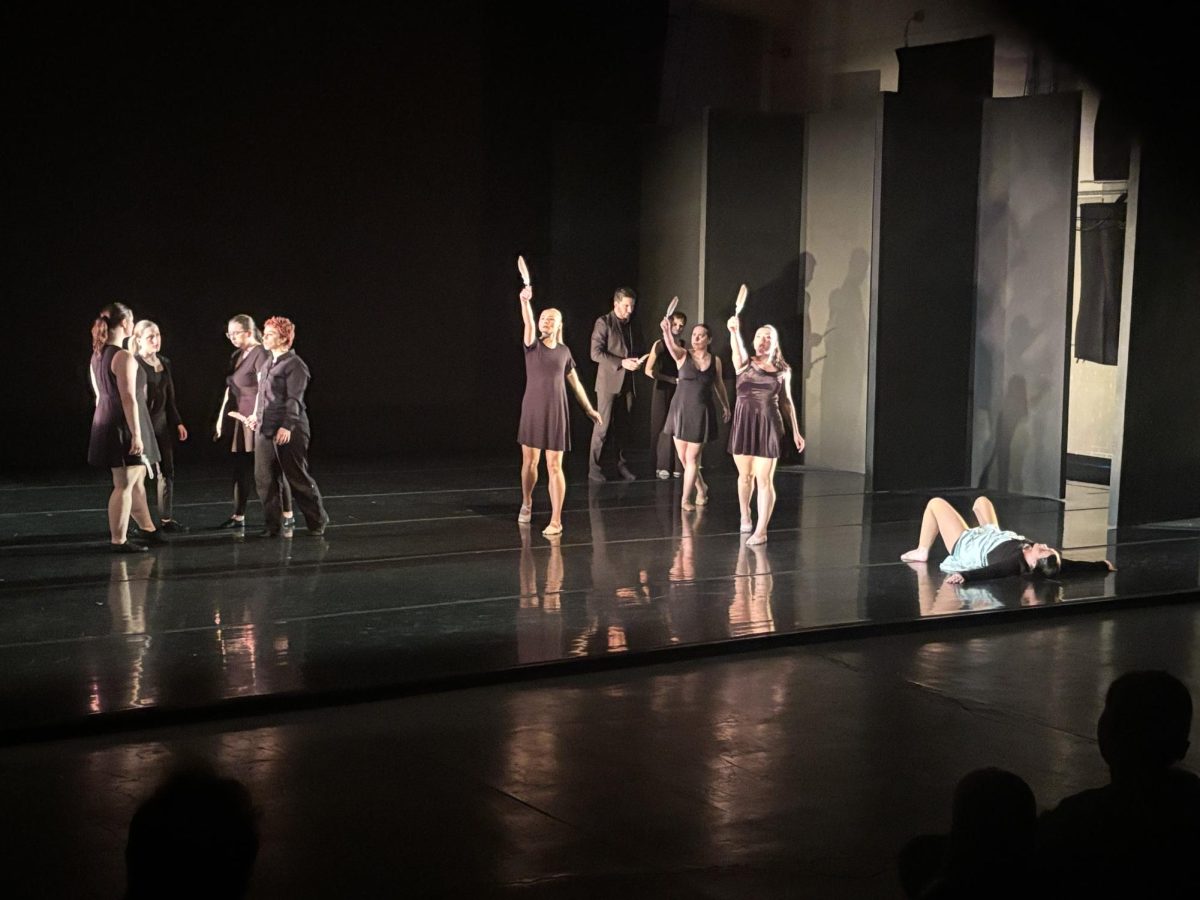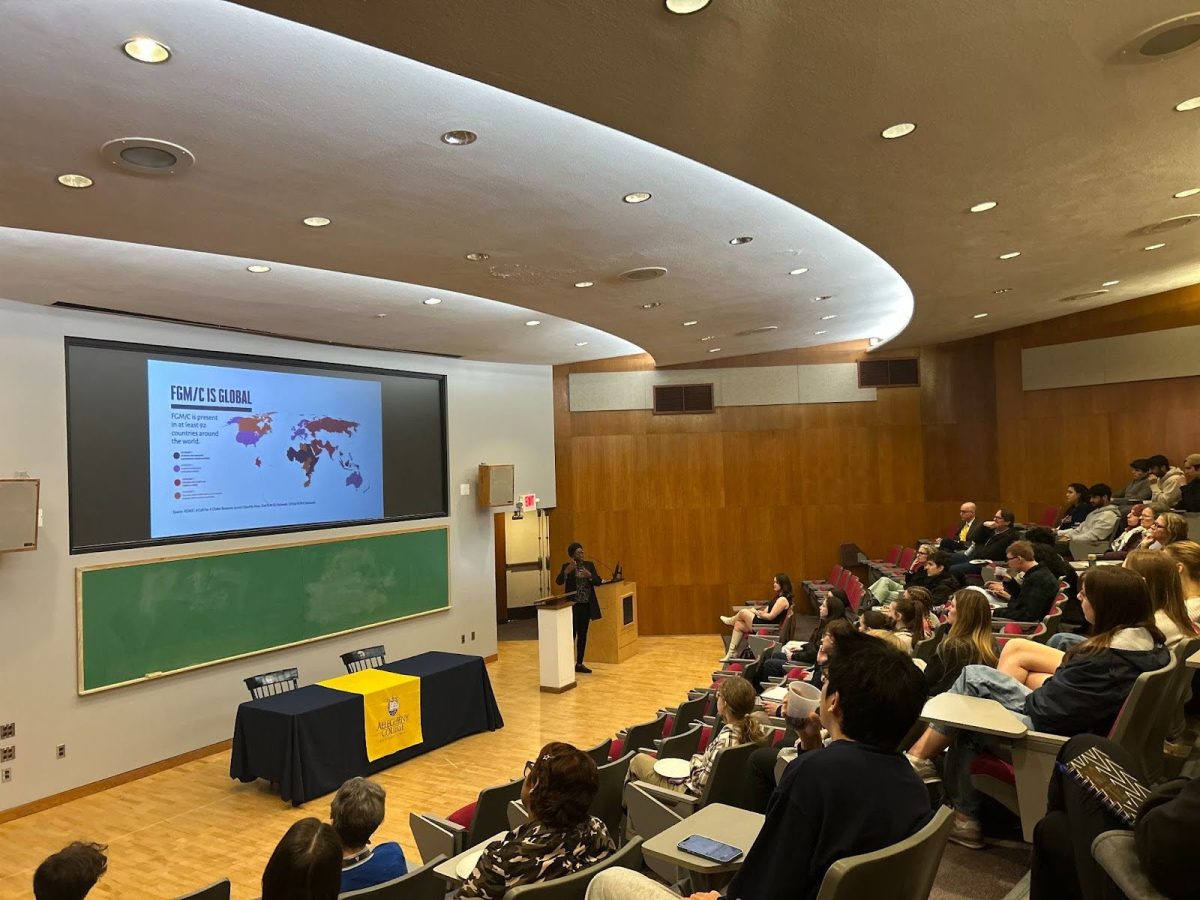By ANGELA MAURONI
Co-Features Editor
mauronia@allegheny.edu
Due to a large amount of kidnapping and killing of journalists in the Middle-East over a six-month period in 2012, there was a large gap in the collection of news over that time period. Now that the kidnappings and killings have largely receded, journalists are working to cover all of the events going on there.
On March 26, Andrew Stanbridge and Ben Lando, two journalists working in Southeast Asia and the Middle East, respectively, visited Allegheny’s Vukovich Center to participate in a panel discussion called “Rebels Against Regime” to share their experiences of news and journalism abroad and the effect these situations are having on the countries they are in.
Assistant Professor of Art Darren Miller, an old friend and former colleague of Stanbridge’s, invited the two on behalf of a steering committee that he is a part of. The committee is tasked with using a grant for the college to make students aware of Middle East and North African affairs.
Stanbridge began his career 15 years ago and quickly realized that photos were a great communication tool.
“It provides readers imagery to step into the story they’re reading about,” Stanbridge said.
Stanbridge uses that imagery to keep people informed, which he believes is a the responsibility of readers.
“Everything that’s happening everywhere has repercussions on you,” said Stanbridge.
Miller agreed with Stanbridge:
“There’s a lot that I don’t know that’s happening all the time,” he said. “It’ll have an affect on us for generations to come.”
Lando said he believes that his work is about the story of Iraq through the oil sector, where his primary focus is. He got his start doing a blog as a collection of information about the oil sector in Iraq. In 2011, Lando started a paywall, moved to Iraq and started gathering reporters and translators from all over Iraq in the hopes of covering all possible stories.
Currently, he is the CEO of the Iraqi Oil Report, and works with two divisions, one being mainstream news about how Iraqis don’t benefit from their own oil companies, and the other for info they sell to oil companies.
Oil brings in $8 billion a year to Iraq. Many other countries have even tried to get Iraq to stop producing oil so that they could raise its price elsewhere.
“Oil has impacted, in sometimes the smallest ways, almost every part of Iraqi history,” Lando said.
Both journalists addressed the violence they encountered. Stanbridge, who has mostly worked in Cambodia and Laos, focused on the physical and emotional scars many of the people face. Despite this focus, Stanbridge wanted to do more than shock people with his pictures.
“The point isn’t to dazzle people with the sort of horror of it all,” Stanbridge said. “People want to change minds.”
Stanbridge’s demonstration at the opening of the discussion included a slideshow of pictures he has taken. They included bombed out homes, gas stations, and mosques, as well as people holding scraps of their homes, destroyed tanks, and various others he got to know during his experiences.
Lando also believes that people have a responsibility as readers.
“People should be developing a sense of compassion and empathy, and having awareness,” said Lando.
Miller believed that it was important to make students aware of what journalists like Stanbridge and Lando do because it helps to internationalize them.
“I don’t think we can have a functional democracy unless we’re aware of what’s going on around the world,” Miller said.
Stanbridge taught a media class throughout the week of the panel discussion and Lando participated in one of the sessions.

and Andrew Stanbridge (right) about their work in the Middle East and Southeast Asia on March 26, 2014.







